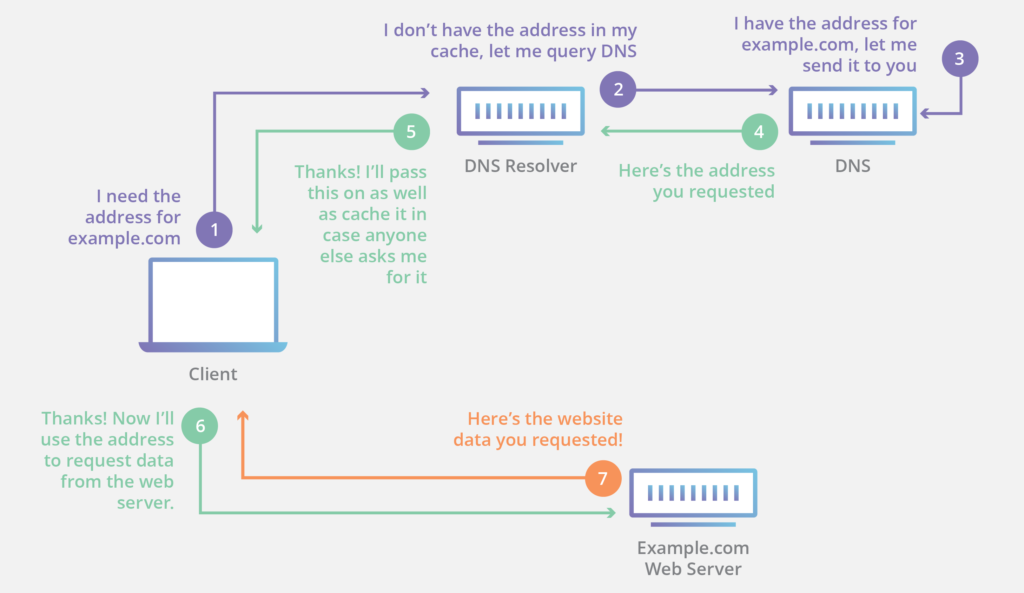What Is DNS? The Domain Name System Explained

The Domain Name System (DNS) serves as the phone book of the Internet, translating domain names into IP addresses and vice versa. When you use a domain name in an address bar to reach your favorite website or type in the IP address to connect to it, the DNS system will do its work and bring you where you want to go.
But what exactly is DNS? How does it work? This article will provide answers to these questions and more, so read on!
Domain Name System (DNS)
DNS is a system that converts Internet names into IP addresses, and vice versa. In layman’s terms, DNS is what makes navigating from one site to another possible online. Understanding how DNS works helps you understand more about how your favorite sites are hosted on servers all over the world. Plus, if you work in any type of technology field, it’s good to have at least a passing knowledge of DNS so you can troubleshoot issues from time to time.

At its most basic level, DNS allows you to enter domain names into your browser and connect to websites. In order for you to be able to navigate from website A to website B, there needs to be a mechanism that takes domain names and turns them into IP addresses. This is where DNS comes in. As explained above, one of DNS’s main functions is translating domains into IP addresses so they can be located online.
Domain Name
A domain name is a unique sequence of characters (words, numbers, and symbols) that identifies each web page and e-mail address on the Internet. Each domain name has a unique IP address to identify itself. Domain names are called top-level domains (TLDs) and include generic top-level domains (gTLDs), country code top-level domains (ccTLDs), as well as many other subdomains.
Domain Registrar
A domain registrar is the service provider where people can purchase domains by paying some annual fees (such as GoDaddy or Namecheap).
When you buy a domain name from a Registrar, that company is responsible for updating and maintaining your registration with ICANN (Internet Corporation for Assigned Names and Numbers). This is where you will get whatever personal information like your contact info, but it is also how they keep track of what IP addresses are associated with your domain.
DNS Records
Once you have a basic understanding of how DNS works, it’s time to move on to DNS records. What are they and why do you need them? Let’s take a look. If you remember from above, each domain name on your website is associated with an IP address (the numerical string that identifies your server).
Each record defines different information about that particular domain. These records can be broken down into three categories: A Records, CNAME Records, and MX Records.
Nameservers
There are basically two types of nameservers: authoritative and recursive. When you register a domain, your domain registrar’s nameservers will be listed as authoritative for that domain.
Any time someone enters your domain into their browser and clicks on another site, those requests will flow through your server (also known as DNS) before finding their destination. This process works similarly to how an airport works—it’s just a hub where people pass through to reach their destinations.
Free DNS vs Premium DNS
Do you want to use a free DNS or premium DNS for your website? Well, if you are new to online business, you may choose a free DNS. It is because many people think that there’s no difference between free and premium services.
However, there are many differences between them. Premium DNS provides faster and more stable service than free ones. For example, Cloudflare offers free DNS with their paid plans which can be used by any user on their website.
In addition to that, premium DNS offers better security, especially when you’re under a DDoS attack.
Summary
I hope you have understood what is DNS and how it works. To recap, DNS is used by browsers to convert the domain name into IP Address.
If you have any doubts regarding DNS, feel free to ask me in the comment section.

